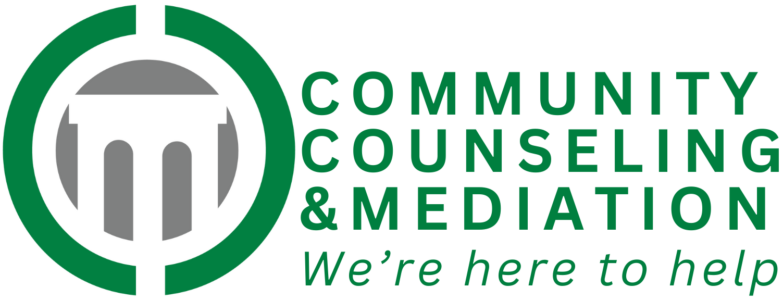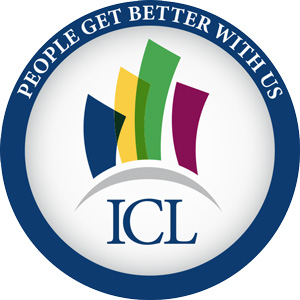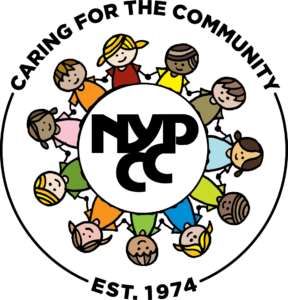-
Lost in the Margins: The Death Sentence of Misdiagnosing Borderline Personality Disorder
The true stigma in mental healthcare today lies not in immorality, as Erving Goffman argued, but rather in the misdiagnosis that condemns countless individuals, perpetuating cycles of ineffective treatment and amplified distress. Twelve million adults are misdiagnosed annually in the United...
-
Trapped by Tradition: The Anxiety of Being a ‘Good’ South Asian Daughter-in-Law
In South Asian societies—including India, Pakistan, Bangladesh, Sri Lanka, and Nepal—the mother-in-law and daughter-in-law relationship is often portrayed as a cornerstone of family life. While cultural narratives admire harmony and respect within the family system, the reality is often more...
-
Mental Health Care Needs a Team: Why Nurse Practitioners and Physician Associates/Assistants Are Part of That Solution
Every week, more patients are reaching out for help, and too often, they still wait weeks or even months for an initial consultation. The U.S. is in the middle of a growing mental health crisis, but access to care hasn’t kept up. Of the nearly 58 million adults living with a mental illness,...
-
Weapons of Mass Distraction: Why Governor Hochul’s New York Cellphone Ban Rings True for Adults
I’m not one to mix politics and parenting, but something clicked, or maybe buzzed, when Governor Kathy Hochul recently proposed a statewide classroom cell phone ban. The proposed “bell-to-bell” ban would make New York the largest state to restrict classroom phone use. According to the...
-
Methadone Offers Hope, Not Harm
For more than a decade, I’ve been caring for patients who struggle with opioid addiction and have seen firsthand the devastating toll it takes on their lives. For many, medications for addiction treatment, including methadone, have given them their lives back. Yet, I see time and again the...
-
Breaking the Silence: How Reducing Stigma Can Improve Perinatal Mental Health Outcomes
May 7th is World Maternal Mental Health Day. This annual day of recognition across the globe aims to raise awareness around maternal mental health conditions, highlighting the importance of education, advocacy, prevention, and effective treatment and support for those experiencing perinatal mood...
-
The Future of Mental Health Is on the Line—We Must Protect It
Federal restructuring risks erasing decades of progress. Together, we can demand better for our communities. Each May, we pause to raise awareness about mental health, which also serves as a time to engage in conversations about emotional well-being, reducing stigma, and promoting equitable...
-
A National Call to Action: Protecting Medicaid for Individuals with Serious Mental Illness and Autism
Take Note: Members of the House Committee on Energy & Commerce are drafting a budget which is highly likely to propose severe cuts to Medicaid. Whatever form those cuts take, they are likely to disproportionately harm people with disabilities, including people living with serious mental illness...
-
“The Son Belongs to His Mother”: South Asian Daughters-in-Law and the Mental Health Toll of Family Hierarchy
In many South Asian families, a daughter-in-law doesn’t simply marry a husband—she marries into a hierarchy. Her entry into the household often marks a shift in family dynamics, especially where a deep, enmeshed mother-son bond is already in place. What may appear on the surface as generational...
-
Black Veterans’ Silent Battle with Mental Health and Addiction Is Costing Lives
When I returned from serving my country, I was a different person. My kids noticed I was distant, and I turned to alcohol and the party life to cope. Years of service had taken a toll on my mental health, and I no longer recognized the man in the mirror. For many veterans like me, the trauma and...
-
Crisis Support for Youth: Expanding Home-Based and Community Care in NY
Without question, our children and youth benefit greatly when they have a safe, stable, and nurturing environment to call home. These elements, when coupled with positive relationships, provide a strong foundation to support brain development and resilience, which enables our youth to thrive...
-
Leveraging Technology to Enhance Mental Health Services for Children and Families
Technology-driven approaches to mental health care have transformed the way services are delivered, making support more accessible and tailored to individual needs. Children and families can particularly benefit from this movement because digital tools enable novel pathways to the implementation of...
-
Community Counseling & Mediation (CCM) Launches New Bond Street Clinic to Support Child and Adolescent Mental Health in Brooklyn
Community Counseling & Mediation (CCM) is proud to announce the grand opening of our Bond Child and Adolescent Article 31 Mental Health Clinic, a new facility dedicated to serving the behavioral health needs of youth and families in Brooklyn. The clinic will officially open on Thursday, May 9,...
-
Understanding Trauma-Informed Care for Young Children and Families in the Shelter
Services for the UnderServed (S:US) is one of the premier and largest community-based social services agencies in New York State. Its mission is to “drive scalable solutions to transform the lives of people with disabilities, people in poverty, and people facing homelessness: solutions that...
-
How to Talk to Your Kids About Cyberbullying
While bullying is an act of intentional aggression carried out repeatedly over time and occurring within a relationship characterized by an imbalance of power (Center for the Study and Prevention of Violence, 2008), cyberbullying is threatening or hurtful messages or images being sent using an...
-
Transcranial Magnetic Stimulation (TMS) for Teens: A Breakthrough Treatment for Adolescent Depression
Adolescence is a critical time for emotional and mental development. During this period, a variety of factors influence mental well-being, including family dynamics, peer relationships, school environments, and community support. Positive connections with others promote resilience, while struggles...
-
A Dual Crisis: Understanding the Rise in Youth Suicide and Substance Use Disorders
As a psychiatrist and parent of two teenage boys, youth health and wellbeing are critically important to me, both professionally and personally. I am deeply concerned about the increasing prevalence and complexity of co-occurring disorders in youth, where mental health disorders coexist with...
-
Supporting Adolescents in Eating Disorder Treatment: The Impact of Family Involvement
For mental health professionals and those invested in behavioral health, understanding the role of family in eating disorder treatment is essential. All eating disorder treatment patients benefit from, and most often require, a personalized and multi-faceted approach to care where clinical...
-
NYSPA Report: Measurement-Based Care – One Piece of the Puzzle in Ensuring Quality Care and Addressing the Crisis in Children’s Mental Health
We are all painfully aware of the children’s mental health crisis (Office of the Surgeon General, 2021). It has affected our children, adolescents, young adults, and their family members. It also impacts those of us who interact with children through our work: the mental health professionals, of...
-
Empowering Families, Supporting Youth: CEC Health Care’s Comprehensive Behavioral Health Model in Glen Cove
CEC Health Care in Glen Cove, NY, offers comprehensive behavioral health services to children through an integrated approach, combining resources from the CEC Article 31 (OMH) Clinic, Certified Community Behavioral Health Clinic (CCBHC), and the Community Mental Health Promotion and Support...
-
The Kids Are Not Alright: How Seismic Changes in the Childhood Experience Have Undermined the Health of a Generation
Our nation’s youth are in crisis. Such a sweeping characterization of an entire demographic would ordinarily border on hyperbole, but as Robert F. Kennedy proclaimed when he announced his candidacy for the Presidency nearly 60 years ago, “These are not ordinary times.” In October 2021, the...
-
Breaking the Cycle: How Cultural Competence in Behavioral Health Can Improve Early Intervention for Black and Brown Youth
Cultural competence in behavioral health refers to the ability of health care providers to understand, communicate with, and effectively interact with individuals across cultures. It includes being aware of the cultural factors that influence an individual's experiences and worldview, including...
-
Developments Towards Greater Social-Emotional Support Before and After Birth
A robust body of interdisciplinary research has converged to show that healthy social-emotional development in pregnancy and the first five years sets the foundation for children’s long-term physical and mental health. When problems emerge, it is easier and far more effective to address them when...
-
How Gen Z Can Lead the Fight Against the Youth Mental Health Crisis
1 in 5 U.S. children experiences a mental health condition, and suicide is now the second leading cause of death among young people. In New York City, we are facing an unprecedented youth mental health crisis, and the systems in place to address these needs are failing—especially for those from...
-
Young Adult Access Centers: A Massachusetts Model for Supporting Young Adults with Behavioral Health Challenges
The Massachusetts Department of Mental Health (DMH) Young Adult Access Centers are unique community spaces that serve young adults with mental health and co-occurring behavioral health concerns and support them with their transition to adulthood. These 10 Access Centers are tailored to young people...
-
Uplifting Disabled Youth Organizing Online: Interdependence and Activism in Digital Spaces
Young disabled organizing today exists in the context of a deep-rooted tradition of reclaiming oppressive and inaccessible spaces into sites for liberation. The Disability Critical Race Studies (DisCrit) framework, as outlined by Stanford scholar Dr. Subini Annamma, posits that racialization is a...
-
The Impact of Social Media on Youth Mental Health: Risks, Benefits, and Family Approaches
In recent years, the conversation around social media and youth mental health has become urgent and deeply personal for many families. Parents are increasingly wary of the role smartphones and social media play in their children’s lives, fueled by the spotlight on growing evidence linking...
-
Supporting Childhood Behavior: Early Strategies for Success
Behavioral disorders in childhood can be challenging for families and school professionals and can have lasting negative effects on wellbeing if left untreated. The 2021-2022 National Survey of Children's Health showed that 7% of children between 3 and 17 years old had been diagnosed with...
-
Supporting Siblings of Children with Behavioral Needs
Behavioral health challenges continue to be a pervasive issue that impacts children and their families. According to the 2022-2023 National Survey of Children's Health, over 25% of children aged 3-17 were reported to have mental, emotional, developmental or behavioral problems. Commonly...
-
Digital Well-Being: Managing Screen Time and Promoting Healthy Tech Habits in Families
From setting morning alarms to random late-night scrolling, screens have become our irreplaceable companions in daily life. For work, education, or entertainment, devices take over our routines. Recent Average Screen Time statistics by Exploding Topics show that the average person spends...
-
Bridging Cultural Gaps in Child and Adolescent Behavioral Health Services
Cultural competence in child and adolescent behavioral health is just as essential as it is in mainstream adult services for effective care. According to the American Psychological Association (2021), while ethnic and racial minorities represent 40% of the U.S. population, they make up only about...
-
Parenting with Mental Illness: Breaking the Silence and Navigating the Challenges
Mental illness affects millions of individuals worldwide, with an estimated 20% of adults in the United States experiencing a mental health disorder each year (NIMH, 2022). Among them, many are parents tasked with the responsibility of raising children while managing their own mental health. While...
-
The Mental Health Crisis Among Kids Is Growing—Can Tech Help?
I’ve always been a believer that big challenges can be solved with creative ideas that leverage the best that people and technology have to offer, and this time, I can’t think of a more critical challenge to address than safeguarding the mental health of our children. Our world is evolving at...
-
Lifting Voices to Transform the Care Delivery Experience for Children and Youth who have Complex Mental Health Needs
The preliminary findings from the national Lifting Voices family/caregiver survey align with and reinforce the Families Together New York State 2025 policy agenda. To find alignment is not surprising given that both the survey and agenda are the creation of caregivers for children and youth with...
-
Addressing Mental Health Disparities Among LGBTQ+ Youth
Mental health challenges among LGBTQ+ youth have been an ongoing concern for human services organizations. This group faces higher rates of bullying, discrimination, and mistreatment than many other populations. As a result, they are more vulnerable to conditions such as anxiety and...
-
How to Talk to Your Child About Starting Therapy: A Guide for Parents
Parents consider starting therapy for a number of different reasons. You might be looking into options to help your child or adolescent manage mood challenges like anxiety or depression. Maybe you’re interested in learning new parenting skills to address behavioral challenges and learn how you...
-
The Hidden Dangers of Concussions in Kids and Teens
For decades now, concussions have been associated with high-impact activities like football or hockey. Parents might even be averse to allowing their children to participate in these sports because of the risk of head injury. The truth is that while these activities may put a child or teen at risk...
-
Helping Teens with Eating Disorders: Balancing Treatment and Academic Success
For adolescents struggling with eating disorders, the pursuit of recovery often comes at a difficult cost: disruption to their education. The rigid structure of traditional schooling rarely accommodates the complex needs of students undergoing treatment, forcing many families to make an impossible...
-
Embracing Healing: The Transformative Power of Trauma-Informed Care for Families
In recent years, the field of child welfare has witnessed a significant shift towards trauma-informed care (TIC), recognizing the profound impact of adverse experiences on children and families. This approach is revolutionizing how we support families in healing and thriving after facing adversity....
-
Addressing Child and Youth Loneliness: Family-Based Interventions to Improve Mental Health
*This is a composite case example. The names have been changed to protect the identities of the clients. Loneliness is not simply a feeling but a social determinant of one’s overall health. Loneliness is a state of emotional distress that develops when one experiences a disconnect between...
-
Brain Disease or Moral Failure? Why the Label Matters for Addiction Recovery
When I went to treatment 15 years ago, I was convinced that addiction wasn't a disease. And that, if it were a disease, it was self-inflicted. Many of the patients I care for today often have the same feelings, blaming themselves and living with shame despite the knowledge we have today. If more...
-
Creating a Continuum of Care: Addressing Mental Health Challenges Facing Youth & Young Adults in New York and Beyond
The mental health landscape for youth and young adults in the United States is at a critical inflection point. According to the World Economic Forum, the world’s 1.2 billion young people, representing 16% of the global population, are facing a generational mental health crisis of unprecedented...
-
Understanding the Link Between Trauma and Substance Use in Adolescents
Adolescence is a critical period of development, and exposure to trauma during this stage can impact mental health and behavior. Research consistently shows a strong connection between trauma and substance use among adolescents, with trauma often acting as a risk factor for developing substance use...
-
Preventing Youth Suicide: Intervention Strategies and Community Resources
The national suicide rate among adolescent youth has risen significantly over the years, surpassing other causes of youth fatalities. Suicide during childhood and adolescence is ranked as the second leading cause of death among these age groups. A 2022 study found that suicide was the...
-
Justice Peer Support: On the Trauma of (and Resilience from) Incarceration
Editorial Note: Given the recent NYS correction officers' strike, this article is especially timely. The strike, driven by concerns over staffing shortages and solitary confinement reforms, has coincided with the tragic deaths of nine incarcerated men (so far). This context underscores the urgency...
-
Enhancing Equity in Adolescent Mental Health: Expanding Access to Comprehensive Dialectical Behavior Therapy (DBT) Treatment
Over the last decade, the US has experienced a significant increase in mental health symptomology and suicidality among children and adolescents, with the COVID-19 pandemic contributing to an even greater increase. In 2021, the surgeon general deemed mental health concerns in children and...
-
Stretching Medicaid Dollars: How Behavioral Health Providers Can Stay Afloat
Many behavioral health providers around the country are trying to establish and implement alternative payment models in hopes of focusing on reducing costs and improving outcomes, especially for more acute patients. However, many states and health plans lag, creating a disincentive for already...
-
Does Listening to the Family Violate HIPAA? What Clinicians Need to Know When Working with Children and Vulnerable Adults
Over time, good clinicians frequently come to similar conclusions. One of those conclusions is that family involvement in treatment can help the person in therapy find deeper and healthier relationships with important people in their lives. While it is not always possible to “fix what is...
-
The Impact of Leisure Activities on Mental Well-Being in Children and Adolescents with Prader-Willi Syndrome and Trauma
Prader-Willi Syndrome (PWS) is a rare, complex genetic syndrome estimated to impact one in 10,000 to 30,000 individuals worldwide (National Library of Medicine [NLM], 2020). PWS is generated by a genetic mutation on Chromosome 15, causing a wide range of cognitive and physical disabilities (NLM,...














